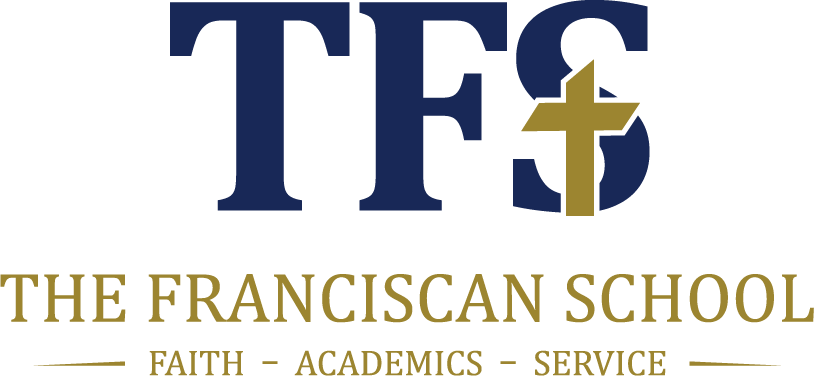Headquartered right here in Raleigh at N.C. State University, the North Carolina Science Olympiad (NCSO) is the largest K-12 STEM competition in North Carolina and the largest Science Olympiad program in the country. Every year, NCSO hosts rigorous academic interscholastic tournaments on university, community college, and public school campuses across the state. The events are designed to enhance and strengthen both science content and process skills.
There are a total of 23 events offered at the state event, sometimes less during the regional events. A few of the event titles are: Anatomy and Physiology, BioProcess Lab, Bottle Rocket, Codebusters, Crave the Wave, Crimbusters, Disease Detectives, Fast Facts, Mission Possible, Sounds of Music, Mousetrap Vehicle, Rocks & Minerals, Solar System, Green Generation, Road Scholar, and so much more.
The 2021-2022 school year was the first time The Franciscan School has offered the Science Olympiad as an elective. That year, seven students in both 6th and 7th grade participated in all 23 events, mostly because of the restrictions that many events were held remotely on our campus or at a nearby high school. In this first year, two events (Crimebusters and Green Generation) earned bids to attend States in by placing 1st at regionals and finishing 7th out of 14 teams.
%20(1).jpg?width=454&height=303&name=Middle%20School_Science%20Olympiad_Feb%2018%20(3)%20(1).jpg)
The second year of the program saw 40 students from all of middle school express interest in the program, therefore instituting JV and Varsity Teams. Ultimately, 15 students competed at the regional events where TFS placed 7th out of 16 teams. One event (Dynamic Planet) qualified for the state tournament in April.
With two years now under our belt, we’ve gained experience and learnings as we head into the program’s third year. Led by 6th grade science teacher Karin Kuropas, it is the hope to again form JV and Varsity teams so more students can participate. This elective requires students to be independent learners and builds on the STEAM objectives they learn in their science classes. Kuropas shares, “I am excited about the growth this elective has had in the two years it has been offered, and I hope to continue to see it grow.”
%20(1).jpg?width=382&height=255&name=Middle%20School_Science%20Olympiad_Feb%2018%20(17)%20(1).jpg)
This year, the plan is to concentrate on the building events during the first trimester. Students will take the time in class to build and test their devices to complete them by the end of the trimester. Once the second trimester starts, students will focus on the research and notes to study for the testing events.Students will be able to choose if they would like to take the first trimester, second trimester, or both since they are different classes. A fee of $50 is required to cover the expenses of the entrance fee of the tournament and supplies needed.
.jpg?width=417&height=313&name=Middle%20School_Science%20Olympiad_Feb%2018%20(24).jpg)
Once the events are announced in early September, students are assigned to events and Kuropas will create a schedule for which events will be worked on each week in order to have both partners available and an equal amount of time allocated to each event. There are typically six to seven different events being worked on in each class period. The three types of events are: Test (students research a topic and create notes and take a test during the competition), Skill (students research and practice a skill and have to solve a problem during the competition), and Build ( students build a device that is run at competition).
Kuropas shares that she would love to connect with anyone who has expertise in any of the subject areas (biology, chemistry, engineering, etc) and can meet with the 2-4 students assigned to that event, either during school or outside of the school day. Many of the successful teams have individual coaches for each event. If interested, please reach out to her at Karin.Kuropas@stfrancisraleigh.org.
We look forward to seeing our students learn, grow, and shine in the Science Olympiad this year!
Recent Posts
Archives
- September 2019 (4)
- August 2020 (3)
- January 2021 (3)
- August 2021 (3)
- January 2022 (3)
- August 2022 (3)
- January 2023 (3)
- June 2023 (3)
- January 2024 (3)
- May 2024 (3)
- October 2024 (3)
- December 2024 (3)
- May 2025 (3)
- October 2025 (3)
- October 2019 (2)
- February 2020 (2)
- March 2020 (2)
- April 2020 (2)
- May 2020 (2)
- July 2020 (2)
- September 2020 (2)
- October 2020 (2)
- November 2020 (2)
- December 2020 (2)
- February 2021 (2)
- March 2021 (2)
- April 2021 (2)
- May 2021 (2)
- June 2021 (2)
- July 2021 (2)
- September 2021 (2)
- October 2021 (2)
- November 2021 (2)
- December 2021 (2)
- February 2022 (2)
- March 2022 (2)
- May 2022 (2)
- June 2022 (2)
- July 2022 (2)
- September 2022 (2)
- October 2022 (2)
- November 2022 (2)
- February 2023 (2)
- March 2023 (2)
- April 2023 (2)
- May 2023 (2)
- July 2023 (2)
- August 2023 (2)
- September 2023 (2)
- October 2023 (2)
- November 2023 (2)
- December 2023 (2)
- February 2024 (2)
- March 2024 (2)
- April 2024 (2)
- June 2024 (2)
- July 2024 (2)
- August 2024 (2)
- September 2024 (2)
- January 2025 (2)
- February 2025 (2)
- March 2025 (2)
- April 2025 (2)
- June 2025 (2)
- July 2025 (2)
- August 2025 (2)
- September 2025 (2)
- November 2025 (2)
- December 2025 (2)
- July 2019 (1)
- August 2019 (1)
- November 2019 (1)
- December 2019 (1)
- January 2020 (1)
- June 2020 (1)
- April 2022 (1)
- December 2022 (1)
- November 2024 (1)
- January 2026 (1)

Leave a Reply